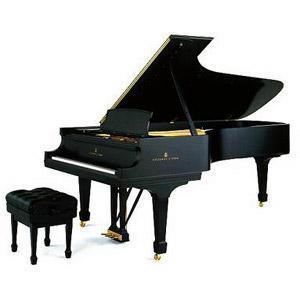| |
In January 1954, Medvedev came to teach in CCOM, who was the first Soviet vocal music expert teaching in China. Then other experts were invited to teach in CCOM, including Bala Akio (a Soviet conductor), Mickijohski and Makarenko (Soviet violinists), Tatulian and Kravchenko (Soviet pianists), Schultz (a violinist from GDR), Longel (a pianist from GDR), Rudolf Komosrose (a Bassoon expert from Czechoslovakia), Horus Vuitier Sielaff (an oboe expert from Czechoslovakia), Deak (a violinist from Hungary), and Chekiskula (a Bulgarian vocal musician). These foreign experts generally taught in different departments in CCOM for a year or two. There are special expert classes set up in each department where excellent teachers and students gathered to study. Meanwhile, to make the expert classes more fruitful, teachers and performers chosen from other domestic music academies and art groups were also received by CCOM to study in the expert classes.
Meanwhile, the East Branch of CCOM (which was renamed as Shanghai Conservatory of Music later) became the music education center of south China. Some musicians who had studied abroad returned home to be the key teachers in each department, including Zhou Xiaoyan, a coloratura who had studied in France and been reputed as the “Chinese Mandarin Duck”, Professor Ding Deshan, a composer who had studied in France, Professor Chen Youxin who had studied in the UK, Professor Xia Guoqiong who had studied in the U.S., and Professor Wu Leyi who had studied in France and returned home in 1954. In the same year, arranged by the Ministry of Culture, all kinds of music experts were hired from the Soviet Union and East European countries to cultivate more qualified teachers. In September 1954, an Experts Working Group was set up by the East Branch of CCOM, seeing to the teaching and living affairs of foreign experts. In less than a decade, there had been many foreign teachers working in the East Branch of CCOM, including Shelov (the Soviet Union, piano), Kerlacheque (GDR, trumpet), Demitelefskaya (the Soviet Union, basic music), Chelkin (Bulgaria, vocal music), Delijijev (the Soviet Union, conductor), Schwartz (GDR, harp), Biliche (the Soviet Union, violin), Bolak (Czechoslovakia, flute), and Kielova (Bulgaria, vocal music).

When foreign experts were teaching in the two conservatories in north and south China, they not only made systematic introductions of western European classical music, Russian classical music, and overviews of the modern music in the Soviet Union and East European countries, but also conducted comprehensive teaching and training on music theory, drill practicing, and artistic accomplishments. Apart from teaching, the experts also held frequent concerts where demonstration performances were given, gave academic lectures, had seminars with teachers in the conservatories, offered many valuable opinions on the formulation of the teaching plans and syllabus of all subjects with considerations to the practices in Chinese conservatories, and fully provided textbooks from the Soviet conservatories of music for all subjects. The experts won high praise and great respect from Chinese teachers and students with their teaching experiences, principles, methods and attitudes. The employment of foreign experts cemented the foundation for the development of music education in China and played a vital role in the emerging of music talents in the New China. With the help of those experts, new majors were set up in CCOM, such as musicology, conducting, basic music, opera and chamber music. In the boom of learning from the Soviet Union, the academic atmosphere prevailed in the conservatories. Musical performances were part of the teaching. Thanks to the integration of teaching and practice, most students became a power force in orchestras immediately after their graduation from the conservatories.
The employment of large numbers of experts from the Soviet Union and East European countries in music conservatories was completely in line with the needs of socialist music education under the circumstances at that time. However, the full adopting of the teaching contents and modes of the Soviet Union inevitably resulted in a negative effect, i.e., the complete denial of the useful experiences in the music development and teaching in modern western countries due to the restriction inflicted by the literary approaches at that time. Some musicians having studied abroad like Ma Sicong and Huang Feili wanted to make contributions to the country. But they had to give up the western music teaching approaches they had learned and restudied the Soviet teaching modes in the classrooms of Soviet experts, and then taught students in Soviet approaches. The practice was not worth the candle, resulting in a blind field in music skills and accomplishments among the music talents of the whole generation. They inherited the tradition of Russia and the Soviet Union in their music styles, which confined their artistic vision. The unfamiliarity of the western music curbed their way to the world music.
|
|
